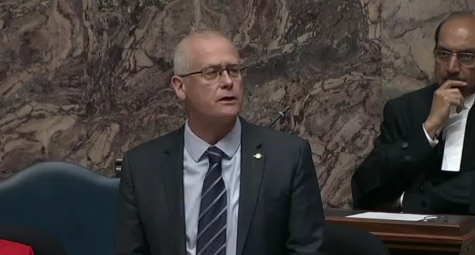Criticism of the new B.C. budget was provided at the provincial legislature today by the MLA of Stikine, who said the many of the main points of the budget meant little to rural and northern communities.
“This is not a budget for rural communities,” Douglas said. “I will be saying ‘No’ to this budget.”
In rural and northern communities, MLA Doug Donaldson said, there is little home transfer to speaker of, so the new house transfer tax break will have no real impact on most residents there. province-wide, transfers account for only 20 percent of the market, he noted, and in the communities he represented the percentage was considerably smaller.
People renovate their homes and live in them while they renovate in most rural and northern communities, Douglas explained, and while there are many people looking to buy houses in his area, they were mostly first time home buyers who would be buying new houses.
The MLA took issue with two main points: the budget included no home energy improvements — a serious challenge in his area is heating houses, many of which have poor insulation, he said — and there were no breaks for drivers.
B.C. Hydro rates have increased 28 percent under the current premier, in order for the company build more electricity generating capacity to service the dramatic population increase in the Lower Mainland and to maintain and upgrade its equipment. However, there was no provision for improving energy efficiency or in any way reducing heating costs.
Drivers are paying 30 percent more for ICBC since 2011, Douglas pointed out. In rural and northern communities, almost all transportation is necessarily by personal vehicle. He gave the example of a resident needing to use a basic medical diagnostic tool such as an MRI, for which they would need to travel to a larger town or city.
However, Douglas said, while the B.C. budget was funded by 95 million in profits from ICBC, there was nothing specifically for those who paid into that funding source.
